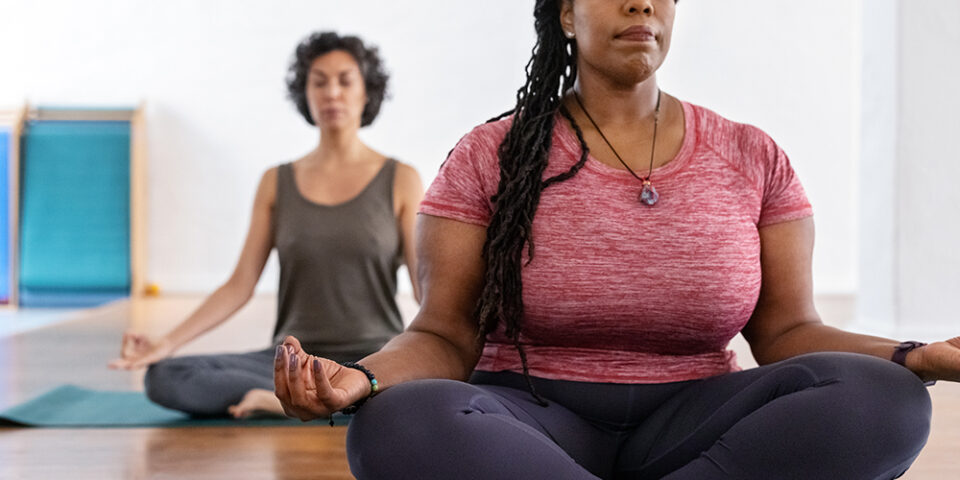How small changes in physical wellness can improve mental health
Although we might not talk about it, a lot of people struggle with mental health, and that number is growing. Casey Berson, MD, shared some ways you can improve your mental health by making small changes in your physical wellness.
So, what is wellness?
“The definition of wellness is the state of being in good health, especially as an actively pursued goal,” Dr. Berson said. “This includes mental health, but it doesn’t only mean mental health. Mental and physical health overlap.”
To improve your overall wellness, Dr. Berson recommended focusing on exercise, diet, mindfulness, socialization and nature.
How does exercise improve mental health?
We hear all the time that exercise is important, but does it really make a difference? Dr. Berson said there is a robust body of literature that supports the benefits of physical health and its correlation with mental health.
In addition to weight reduction, reduced cholesterol and improved cardiovascular fitness, exercise helps your mental health through:
- Improved self-esteem and cognitive function
- Better sleep
- Better endurance
- Stress relief
- Improved mood
- Increased energy and stamina
- Better mental alertness
Studies also have shown there are different brain changes that can happen, including an increase in gray matter, changes in structuring connectivity of white matter, an increase in overall white matter volume, as well and changes to the basal ganglia.
“These effects are incredible when you consider all that you’re doing is moving,” Dr. Berson said. “The most effective exercises are the exercises you actually do, and almost all forms of exercise are going to be beneficial in different ways. Even things as simple as parking a little bit farther away can help.”
What you eat can make a difference in how you feel
When we say you are what you eat, that’s a little bit true. “All of the body’s neurotransmitters that influence and relay how we feel, as well as all of the hormones that are working through us, all start with building blocks that we get from the energy that we take in,” Dr. Berson said. “This includes the microbiome which helps make sure we’re getting the right nutrients and vitamins. They all play a role in how we’re feeling and what we’re doing.”
Two studies – the SMILE study and the SUN study – found that what you eat can make a difference in how you’re feeling. The SUN study found that the Mediterranean diet helped prevent depressive episodes. The SMILE study looked at how avoiding unhealthy foods and adding healthy foods, and learning to eat them more mindfully, made a significant difference in depressive symptoms.
In terms of the gut microbiome, which is a collection of microorganisms that naturally live inside us, there are many ways what you eat can affect your mood. “Folate supports the creation of new cells,” Dr. Berson explained. “Iron helps build hemoglobin which can help with oxygen transportation in the blood. Magnesium, potassium, all these nutrients play a role in our bodies.”
For more information about how you can improve how you’re feeling by changing what you eat, reach out to a nutritionist or your primary care provider.
Why using mindfulness meditation is helpful
“Mindfulness is a term that has been tossed around a lot over the years,” Dr. Berson said. “When I think of mindfulness, two key takeaways are awareness and acceptance.” Awareness is the knowledge and ability to focus your attention on your inner process and experiences. Acceptance is the ability to observe and accept rather than judge what you’re noticing.
Research into mindfulness-based interventions has found that across all randomized control trials, there were positive effects for executive functioning, attention, depression, anxiety, stress and negative behaviors.
There’s also neurobehavioral evidence suggesting that mindfulness meditation can enhance your ability to take your mind away from negative thoughts and really focus on where you are in the moment.
“Mindfulness meditation has been shown to have similar benefits to our overall wellbeing,” Dr. Berson said. “We have substantial evidence that properly designated and delivered mindfulness meditation-based interventions can perform comparatively to established treatments for depression, anxiety, pain and substance use. And mindfulness meditation is something that you can do on your own.”
How socialization and nature impact our health
Being around people impacts how we’re doing and who we are. And it can be fun. Being in nature also can make you feel positive emotions such as calmness and joy. “So, if you’re taking a walk outside with a friend in the morning, you’ve hit your exercise, socialization and nature all in one,” Dr. Berson said. “This has a profound impact and the possibility to really make a difference for how you’re feeling.”
When should you reach out for help?
If you’re feeling super low and you might be a danger to yourself or others, reach out to a mental health provider. You can reach out to a school guidance counselor if you’re in school. In the workplace, look to see if you have an employee assistance program that you can go to.
Other resources include:
- National Suicide and Crisis Lifeline – dial 988
- CRISIS Text Line – 741741
- Community Crisis Response and Intervention – 833-364-2274
- Mental Health America Crisis Line (864-271-8888) and Text Line (839863)
- Prisma Health Connect Center – 864-455-8988
If you’re concerned about a friend or loved one, these are the things you want to look for – if they’re unable to take care of themselves, they’re voicing thoughts that maybe they don’t want to be alive anymore or they’re having thoughts that are turning dangerous. In these cases, please reach out for help.
Find a doctor
Whether you’re looking for a primary care physician or need to see a specialist, we’re here to help with experienced, compassionate care near you.
Find a Doctor

